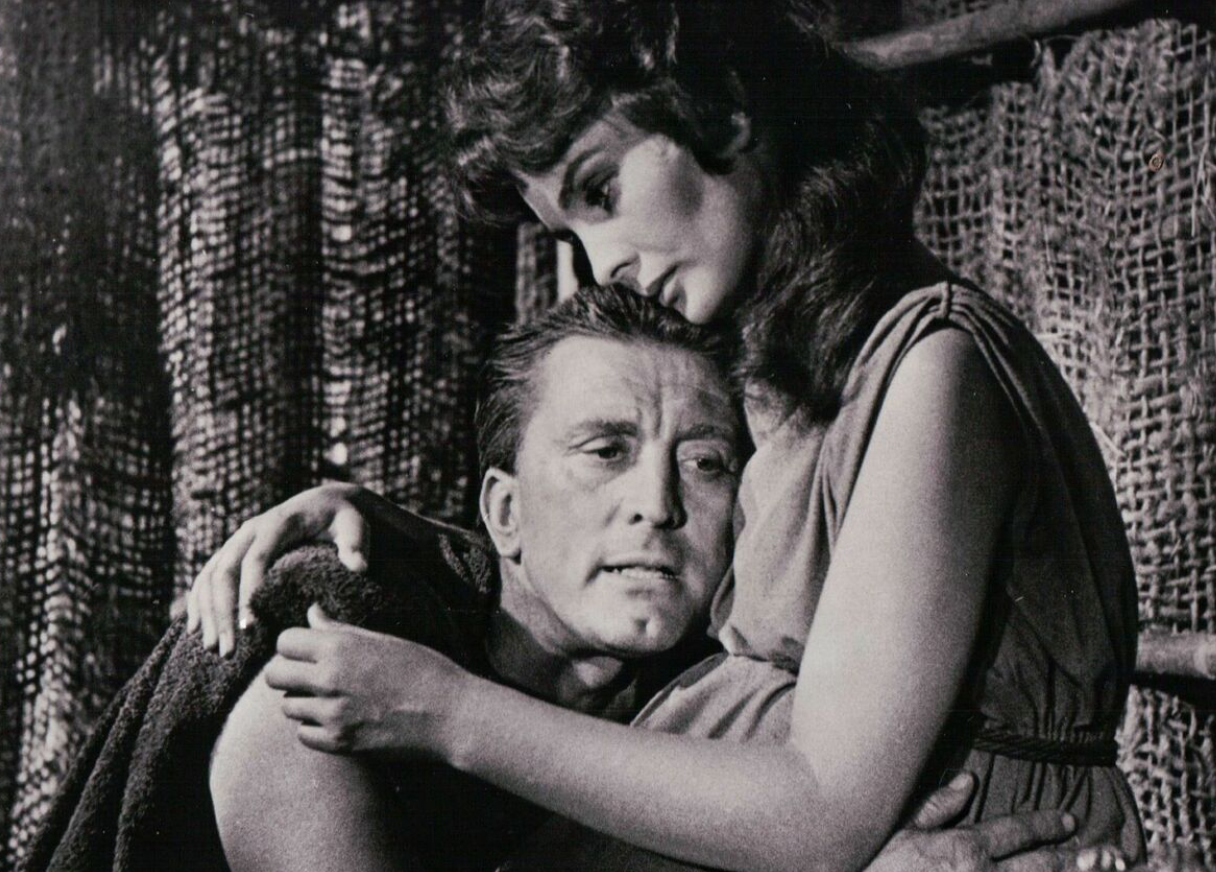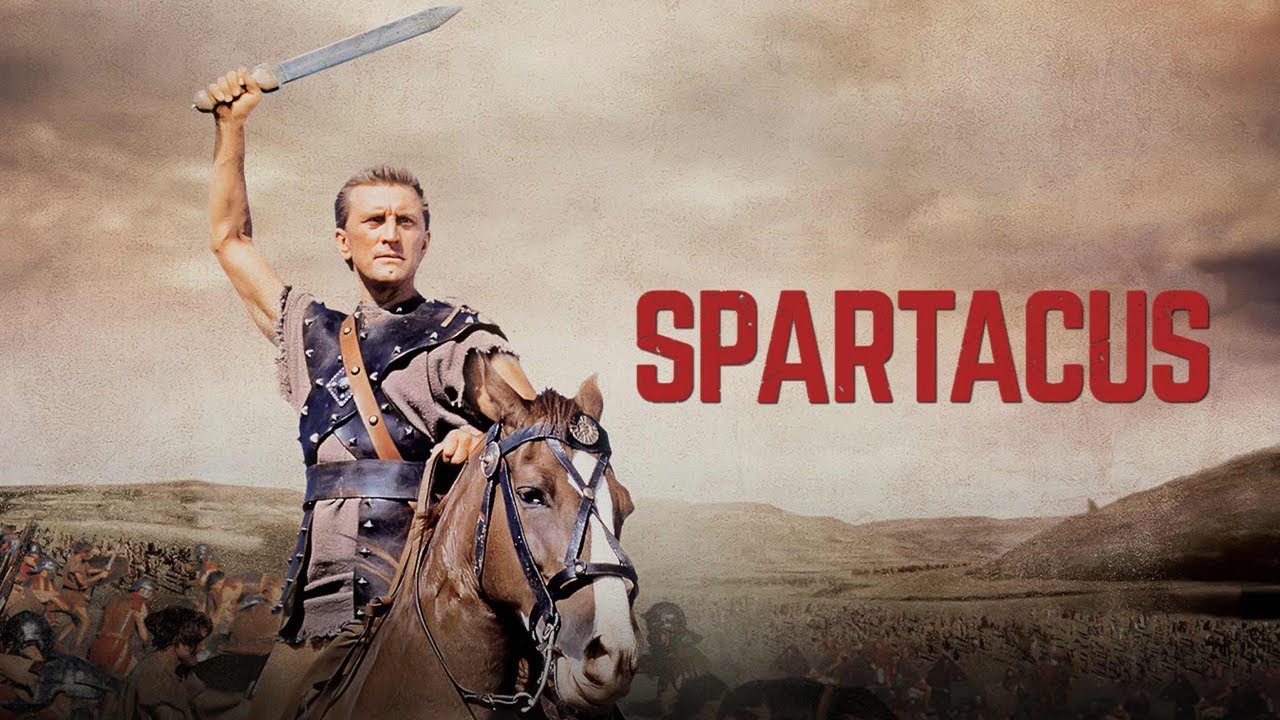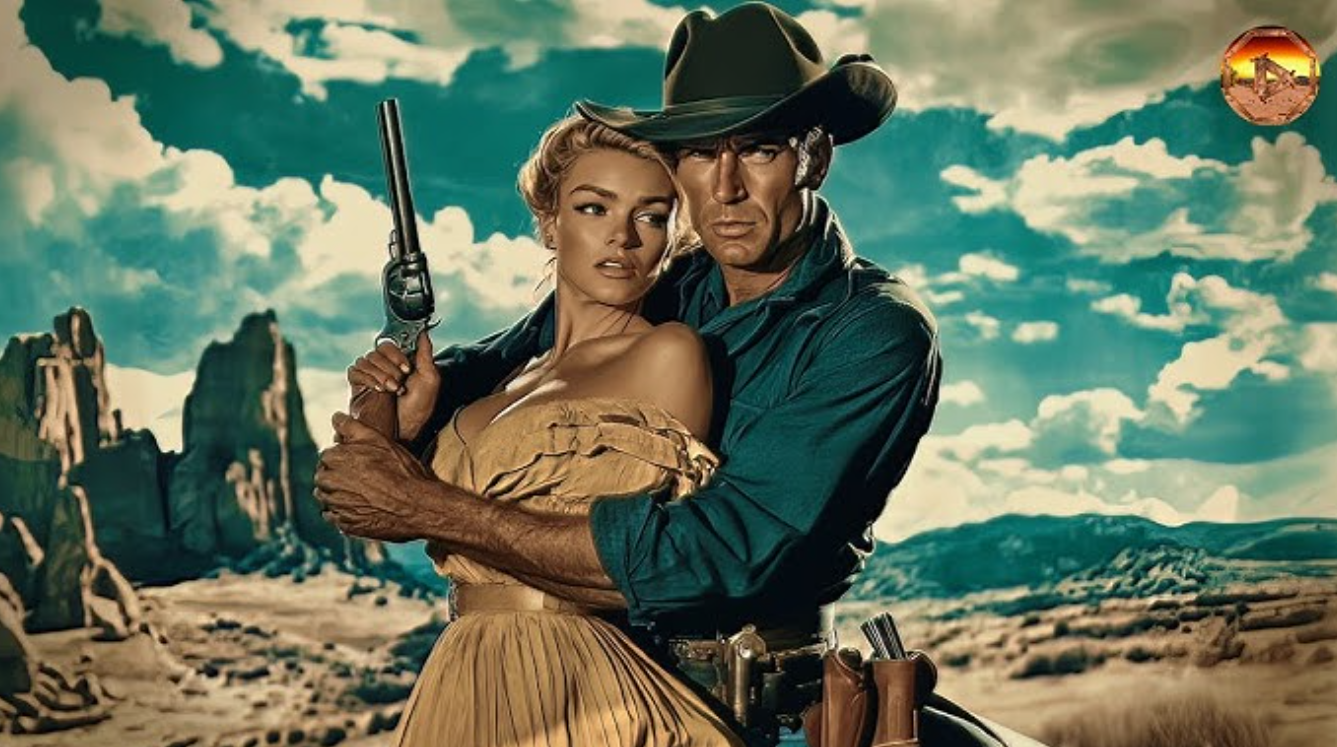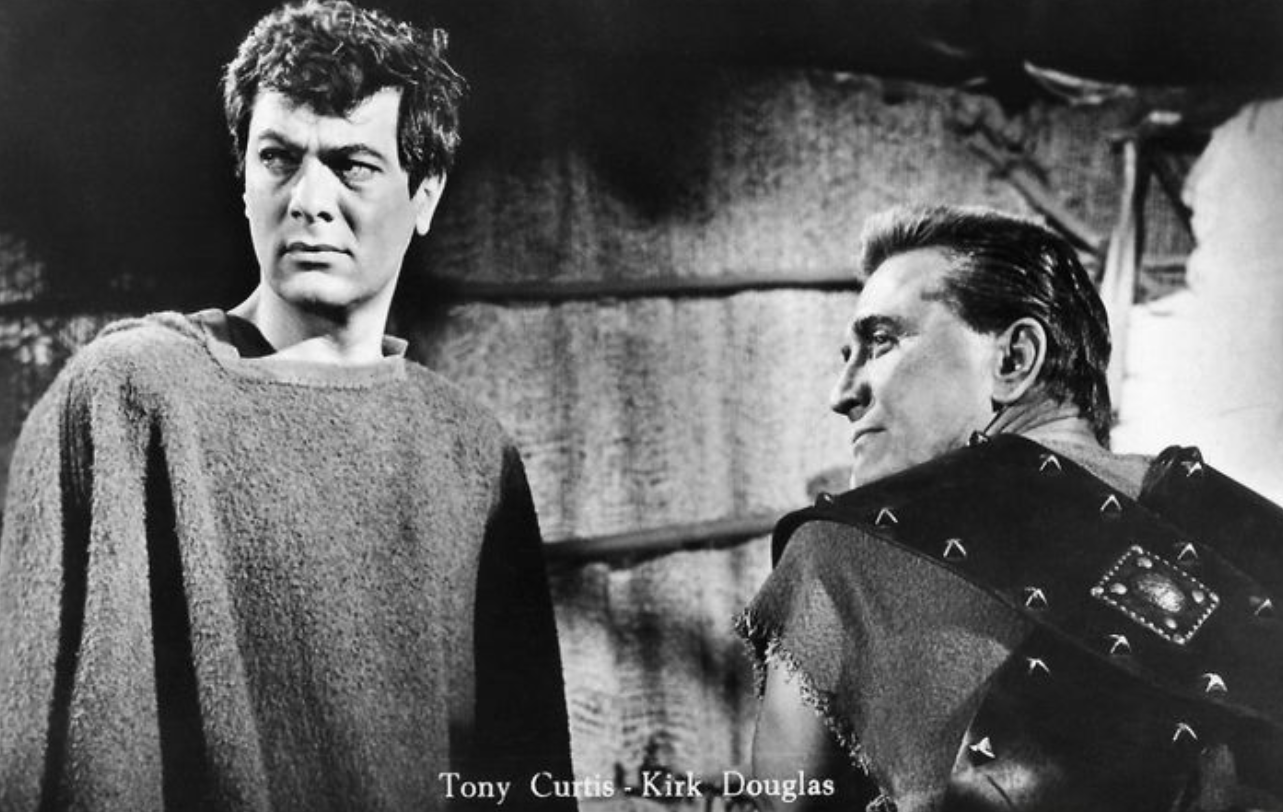🎬 Spartacus (1960): A Revolutionary Epic of Freedom, Power, and Sacrifice

Spartacus (1960), directed by Stanley Kubrick and produced by Kirk Douglas, is a monumental historical drama that tells the story of the legendary slave-turned-rebel, Spartacus, who led a revolt against the Roman Republic. With an all-star cast that includes Kirk Douglas, Laurence Olivier, Jean Simmons, Charles Laughton, and Peter Ustinov, Spartacus is a film of immense scale, ambition, and emotion. Adapted from Howard Fast’s novel, the film is a celebration of individual freedom and resistance against tyranny, combining epic battles, intimate drama, and political intrigue. But beyond its spectacle, Spartacus is a film that resonates deeply with its themes of justice, sacrifice, and the power of human will.
Plot Overview:
The film begins in 73 B.C., with Spartacus (Kirk Douglas), a Thracian slave, enduring brutal conditions in a Roman mining camp. His rebellious spirit catches the attention of Lentulus Batiatus (Peter Ustinov), a Roman lanista who runs a gladiatorial school. Batiatus purchases Spartacus and sends him to his school, where slaves are trained to become gladiators and fight to the death for the amusement of the Roman elite.
At the school, Spartacus forms a close bond with fellow gladiators and falls in love with the slave woman Varinia (Jean Simmons). After witnessing the cruelty and dehumanization of the gladiator games, Spartacus leads a revolt, killing the overseers and freeing the other slaves. He then organizes the slaves into a rebel army that roams the countryside, growing in strength as more slaves join their cause. Their ultimate goal is to escape from Italy and find freedom.

As Spartacus and his army challenge the might of Rome, the Roman Senate becomes divided on how to handle the uprising. The ambitious and ruthless General Crassus (Laurence Olivier) sees the revolt as an opportunity to seize control of Rome, while the more moderate senator Gracchus (Charles Laughton) tries to preserve the Republic. As Spartacus’s rebellion gains momentum, the forces of Crassus close in, leading to a final, epic showdown that will decide the fate of Spartacus and his followers.
Character Development and Themes:
Kirk Douglas’s portrayal of Spartacus is one of strength, conviction, and humanity. Douglas brings a fiery intensity to the role, making Spartacus a symbol of defiance against oppression. His Spartacus is not only a warrior but also a leader and visionary, determined to secure freedom for himself and his people. The film emphasizes Spartacus’s transformation from a slave to a revolutionary, driven by a deep sense of justice and love for Varinia. His relationship with Varinia adds an emotional core to the film, humanizing Spartacus and providing a tender contrast to the violence and brutality of the world around him.
Laurence Olivier’s Crassus is the perfect foil to Spartacus. Cold, calculating, and power-hungry, Crassus represents the oppressive might of Rome. Olivier imbues Crassus with a quiet menace, making him a formidable antagonist whose pursuit of absolute control is as ruthless as it is relentless. Crassus’s relationship with the Roman elite and his manipulation of the political system reflect the film’s critique of tyranny and unchecked power.
Jean Simmons’s Varinia serves as the heart of the film. Her love for Spartacus and her unwavering belief in his cause provide emotional depth, grounding Spartacus’s fight for freedom in something deeply personal. Her character offers a softer perspective in a world dominated by violence, reminding both Spartacus and the audience of what’s truly at stake.

The supporting cast is also outstanding. Charles Laughton’s Gracchus, the cynical yet principled senator, and Peter Ustinov’s Batiatus, the opportunistic lanista, add complexity and humor to the film’s portrayal of Roman politics. Ustinov, in particular, delivers a performance filled with wit and subtlety, providing comic relief in a film otherwise marked by its intensity.
The central theme of Spartacus is the fight for freedom and human dignity. Spartacus’s rebellion is portrayed as a noble and just cause, a struggle against a system that dehumanizes and exploits its people. The film’s message is clear: even in the face of overwhelming odds, the desire for freedom and justice cannot be extinguished. Spartacus’s refusal to bow to Roman authority, even in the face of certain death, stands as a powerful testament to the strength of the human spirit.
The film also explores the corrupting influence of power, particularly through Crassus’s character. While Spartacus fights for the freedom of all, Crassus seeks control over Rome and its people. The political intrigue between Crassus and Gracchus, as well as the inner workings of the Roman Senate, highlight the greed and ambition that fuel much of the conflict in the story.
Action and Visual Style:

Spartacus is renowned for its grand battle sequences and large-scale action. The climactic battle between Spartacus’s slave army and the Roman legions, featuring thousands of extras, is a stunning example of epic filmmaking. The choreography of the battles, combined with Russell Metty’s sweeping cinematography, gives the film a sense of scale and spectacle that few films of its era could match. Kubrick’s direction during the action sequences is precise, capturing both the chaos of the battlefield and the personal stakes for Spartacus and his men.
Kubrick’s visual style is more restrained in the film’s quieter moments, focusing on intimate character interactions and the political machinations of Rome. The contrast between the vast, sun-drenched landscapes where the battles take place and the dark, opulent interiors of Rome’s elite creates a visual representation of the divide between the oppressors and the oppressed.
The film’s score, composed by Alex North, adds to the grandeur and emotional weight of the story. The music underscores Spartacus’s journey from a gladiator to a revolutionary leader, enhancing both the film’s action sequences and its more introspective moments.
Criticism:
While Spartacus is widely regarded as one of the greatest historical epics ever made, some critics have noted that the film’s pacing can feel slow at times, particularly during the political scenes. Kubrick’s direction, while masterful in the action sequences, can be more methodical and deliberate in the quieter moments, which may not appeal to all viewers.
Additionally, the film’s portrayal of Spartacus as an idealized hero, while emotionally satisfying, is somewhat simplified. The historical Spartacus remains a figure shrouded in mystery, and the film’s depiction of him as a symbol of freedom and justice, while inspiring, may feel overly romanticized.
Some viewers may also find that the film’s runtime—over three hours—can be daunting. The extended political discussions and character development, while essential to the story, may test the patience of those expecting a more action-driven narrative.
Final Thoughts:

Spartacus is a timeless epic that combines thrilling action, powerful performances, and deep emotional resonance. Kirk Douglas’s portrayal of the slave-turned-rebel is iconic, and the film’s themes of freedom, sacrifice, and the corrupting nature of power continue to resonate with audiences today. Stanley Kubrick’s direction, combined with a stellar cast and breathtaking cinematography, makes Spartacus a must-watch for fans of historical dramas and epic storytelling.
While the film may take some liberties with historical accuracy and can feel slow-paced in parts, its exploration of the human desire for freedom and justice remains compelling and relevant. Spartacus is more than just a tale of rebellion—it is a story of hope, resilience, and the enduring struggle for dignity in the face of tyranny.
Movie Information:
- Title: Spartacus
- Director: Stanley Kubrick
- Starring: Kirk Douglas, Laurence Olivier, Jean Simmons, Charles Laughton, Peter Ustinov
- Genre: Historical Drama, Epic
- Release Date: October 6, 1960
- Running Time: 197 minutes
- Rating: PG-13
- Plot Summary: In 73 B.C., Spartacus, a slave forced to become a gladiator, leads a revolt against the Roman Republic. As his army of slaves grows in strength, Spartacus faces the might of Rome, led by the ruthless General Crassus. The film follows Spartacus’s journey from a gladiator to a revolutionary, as he fights for freedom and the dignity of all people.
SUGGESTED VIDEO FOR YOU:
[Movie Review] The Killer’s Game (2024): A Deadly Contract, A Race Against Time
[Movie Review] Survival War In The 333-Story Vertical Prison || The Platform 2










